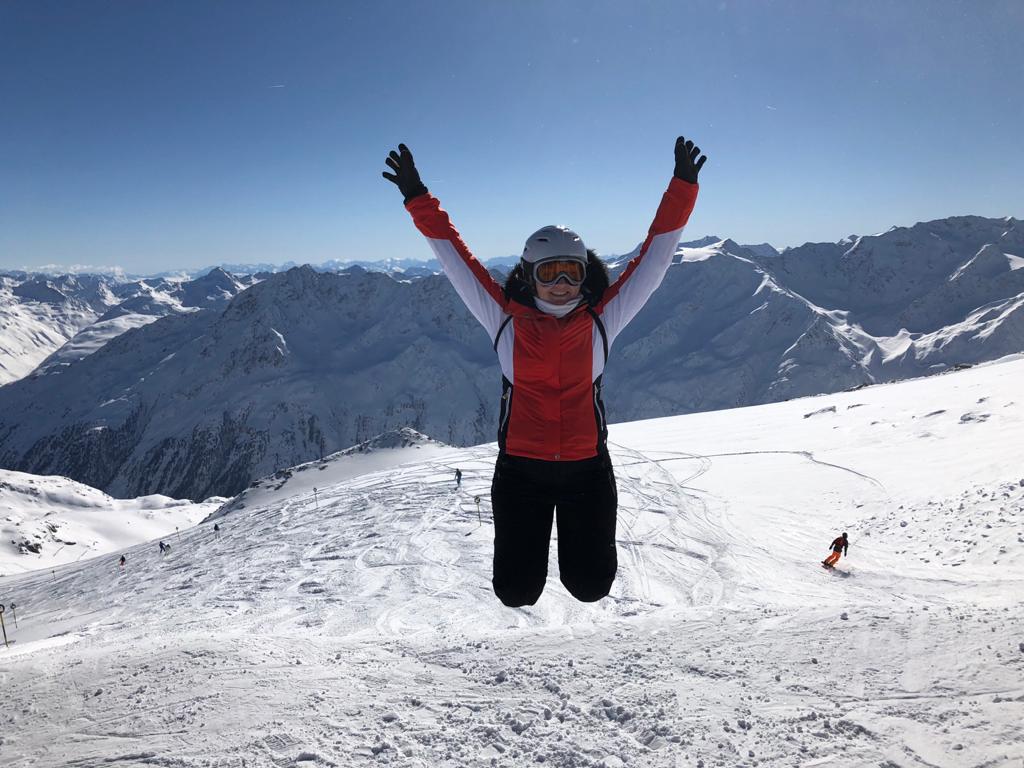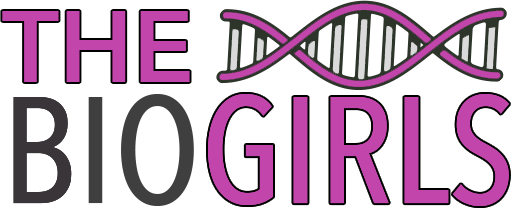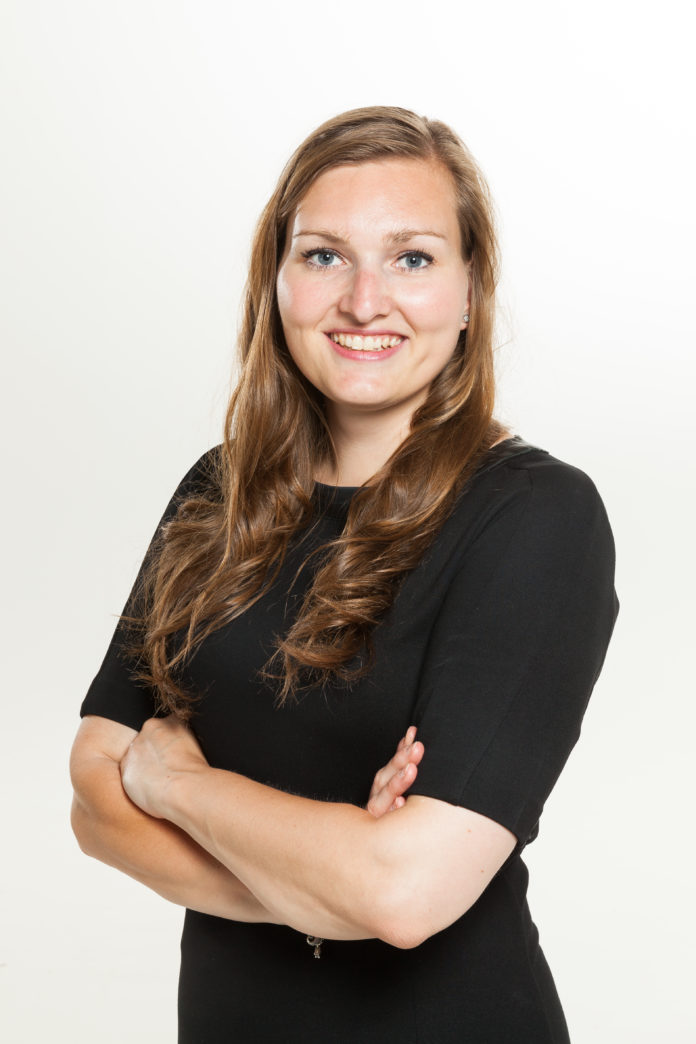Anne Doedée, PhD works as a group leader in drug metabolism and pharmacokinetics at Charles River Laboratories in ‘s-Hertogenbosch, the Netherlands. We asked her about her job, career, education, and any advice she might have for anyone looking for a similar career. You can connect with Anne on LinkedIn.
What does your job entail and what tasks do you perform on a daily basis?
We perform in vivo drug metabolism and pharmacokinetics studies in rodents and non-rodents and determine the pharmacokinetics of pharmaceuticals, compounds (labeled or not), exposure levels, blood levels of drugs, and more. Studies are mostly preclinical before compounds and drugs are tested in human or bioequivalence studies for veterinary products. We also perform calculations of drug concentrations as part of human clinical trials, for instance, to calculate the total exposure.
In my job as a group leader, I am responsible for study quotation requests for our current and potential new clients. I discuss with the client what type of studies they would like to see performed and what is required by regulatory agencies. With potential new clients, I discuss whether our company is a good match for their needs and think with them how to answer their research questions. Not every lead results in a new client but a lot of time goes into these discussions. I am also responsible for dividing the work we have over our team, and I perform studies myself. On a daily basis, I am spending most of my time communicating with clients and my team members, and our personnel at the animal facility. I plan the work and also train new people on the team.
What is your favorite thing about your job?
My job entails many different types of tasks and I really enjoy this variety. Writing study protocols, looking into the financing of projects, and communicating with people are my favorite tasks. Not one day is the same, which makes it difficult to plan but it keeps things interesting.
What is the hardest thing about your job?
While I like the variety of tasks, it is sometimes a challenge to fit those in a regular work week and to avoid overtime. I like my job, but is also important to keep a good work-life balance. Another challenge is to say “no” to clients when we cannot perform their desired studies because we can not offer the requested timelines, required material, time, or expertise.
When did you first learn about this job and how were you made aware of this field?
During my undergrad, I first came into contact with this company when I visited the workplace during a field trip. However, even though we were informed about the work here, I did not have the right image of what it entailed. Later, during my PhD, I met people at conferences, and talking to them gave me a better view of what the company did and what working there would be like. Additionally, colleagues in my PhD lab mentioned that this type of work might interest me as in industry there is a different way of working, which is more fast-paced than in academic institutions.
What made you interested in a career in science and specifically toxicology research? Was it clear to you from a young age that that was what you wanted to do, or else, what or who inspired you to follow this path?
Throughout my education and career, I always followed the path of what interested me without a clear career plan. In high school, I liked biology and in particular the medical topics. So I wanted to do something medical, but never wanted to become a physician. Therefore, I looked at multiple undergrad programs, and found a program in biomedical sciences and thought it would be a good match for me. During the undergrad courses, I got really interested in toxicology research. At first, I wanted to pursue an academic career, as this is the most promoted step at the University, and therefore, after my MSc in toxicology and pathobiology, I went to do a PhD. Then, during my PhD, I realized that the work culture in industry area would better fit with my profile and values, and therefore I actively searched for a job in this field.
Could you give us a short overview of your study and career path?
I obtained a BSc in biomedical sciences at the Radboud University in Nijmegen, the Netherlands. That study had a matching MSc program, and given my interest in toxicology and pathobiology, I chose to major in those two areas. During the MSc, I did two research internships for thesis projects, one at the national institute for public health and environment (RIVM) in the Netherlands studying embryonic stem cell tests as an alternative for animal toxicology studies, and one at the McMaster University in Hamilton, Canada, studying how environmental toxicants dysregulate neurotrophins in the reproductive tract. After that, I started my PhD project entitled “The effects of paracetamol on the immune response after vaccination” at the RIVM and the University of Maastricht in the Netherlands. Six years ago, I started in my current job. During those six years, I was trained at the job and obtained more responsibilities over time. I also receive management training, which teaches me how to manage my group best and communicate with people with different personalities. I really enjoy developing these skill sets.
Do you feel like you were always supported to pursue this career and if you weren’t how did you deal with that?
Absolutely, my parents and others in my environment have always been very supportive during my education and career. It has also been great to see that my colleagues also supported me in my management role.
As a female in the STEM field, do you feel like you are currently supported in your role, or are there any opportunities or aspects of your job you feel like you have a harder time accessing than men?
In my current company, I do not think there is a difference, which is a great environment to work in. The company’s personnel consists for over 2/3 of women, which has created an environment in which there is no difference between men and women.
In general, do you feel like your field is welcoming to women?
Yes, as I just mentioned, there are many women in our area of work. Sometimes we even hope a man will apply to jobs because it would be good for balance.
Can you describe the culture of your company (the social aspect, hierarchy, perspectives on time off, etc.)?
This company is very social. We have an open-door policy, which basically means everyone has their office doors open so there are no barriers for people to communicate. We also organize many activities after work, going for a walk during the lunch break, have dinners and drinks, etc. We have a pretty young team, with most people aged between 25 and 35. There is some hierarchy, but that does not mean people in the higher ranks are not approachable. Even so, when you are new, this can still feel intimidating, but people are very open and actively try to stimulate conversation and personal growth.

How does the environment at your current place of work compare to others you have worked at?
In the labs where I performed my internships and PhD research, I felt there was more hierarchy. Some people were of the opinion of I know better cause I am more experienced than new people. This creates an environment that is not very open to new ideas. In my current workplace I also find it is easier to achieve something, as the decision-making process is faster than in academia. In industry, it is about ensuring the client is happy and finding the right balance to achieve that while ensuring that the work can be performed well is the challenge.
What is the learning curve like for a career in your line of work – do you feel like you learned everything pretty quickly or did you have to work really hard for a long time to get your foothold? Is the learning ongoing?
It probably took me three years to learn all tasks I am currently doing. I learned those on the job; when you are new, you have someone overseeing your work and signing off on it. So, the supervisor is responsible, but you still have contact with the client yourself. We perform many different types of studies, so it takes quite some time to learn the specifics of all of them, especially since most studies are custom made, and some are only performed sporadically. So, I am still learning when we encounter new types of studies or protocols. Over time, I grew into a management role, and every day I continue to learn. This makes the job interesting as there is always more to learn and to develop professionally.
What are the transferrable skills you may have gained from grad school and other jobs that you were able to apply to this job?
Grad school helped me learn how to plan and organize work and experiments well. Project management is important both in grad school and in my current job; plan the time a study will take, the costs, the personnel, etc. The writing experience I obtained during grad school writing protocols and manuscripts also really helps in my current work. I also supervised students during grad school, which helps in my current role as I learned how to teach someone something new and manage the planning of others.
Looking back, is there anything you would have done differently to get where you are now?
Yes, I would not have done a PhD, I think the MSc would have prepared me enough for my current work. My PhD definitely helped, but I could also have developed those skills on the job. And I think I would have been happier as this type of work matches my ideal way of working better. I did not have a clear image of other jobs out there when I chose to do a PhD. It is a bit of a waste that different career paths aren’t shown more during education. The MSc allowed me to obtain practical experience, and that diploma really means something in the Netherlands and allows you to obtain jobs in leadership positions. With only an undergrad, it is harder, or even impossible, to get to positions like the one I currently have.
What would you say to other women who might be interested in a career like yours if they aren’t sure if they’ll be able to succeed or where to start?
Network with people, talk to people in the field, so you figure out what their jobs entail. That helps you get a clear image of what the daily activities of a job are. You can read about it too but talking to someone is usually more valuable. Conferences are also great; you can talk to people from companies to get an idea of what they do. It might be difficult to open this conversation with “strangers” and/or busy looking people, but I’m pretty sure that most of them are more than happy to discuss their job with you as we all started in your position.











